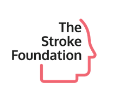The novel COVID-19 virus has shaken up our lives and with that comes more challenges when recovering from a stroke. In this article we will review what we know about the virus, how stroke patients have been affected, and what precautions stroke survivors need to take to be safe.
What is COVID-19?
This new coronavirus (SARS-CoV-2) is a highly contagious respiratory disease that can cause inflammation in the lungs similar to the flu. Unlike the flu, COVID-19 can cause severe difficulty breathing requiring hospitalization, sometimes for a very long time.
The most common symptoms of COVID-19 are:
- Fever or chills
- Cough
- Shortness of breath or difficulty breathing
- Fatigue
- Muscle or body aches
- Headache
- New loss of taste or smell
- Sore throat
- Congestion or runny nose
- Nausea or vomiting
- Diarrhea
This list of symptoms is not exclusive — the medical community is still discovering new symptoms and updating health authorities as they go. If you are experiencing any of these symptoms, use the CDC self-checker to determine whether you should seek medical help.
Stroke and COVID-19
As this new virus started to propagate across the world, doctors started noticing this virus didn’t just cause a respiratory infection — the symptoms varied widely and there was a worrying trend that a significant number of patients were suffering strokes.
A recent study at two New York hospitals found that patients infected with COVID-19 had a higher risk of ischemic stroke than patients with influenza. This novel virus seems to be causing blood clots to form in the lungs which can travel to the brain and cause a stroke. Also in New York, doctors reported anomalous cases of stroke in young people under 50:
“Over a 2-week period from March 23 to April 7, 2020, a total of five patients (including the aforementioned patient) who were younger than 50 years of age presented with new-onset symptoms of large-vessel ischemic stroke. All five patients tested positive for Covid-19. By comparison, every 2 weeks over the previous 12 months, our service has treated, on average, 0.73 patients younger than 50 years of age with large-vessel stroke.¨
Scientists still cannot identify why this virus causes significant blood clots, but the warning is: just as anyone can be infected with COVID-19, anyone can be at risk of a stroke. We must take all precautions to prevent being infected, and if infected we must be vigilant about symptoms and act quickly when a patient presents symptoms of a stroke.
Taking care of yourself
Medical professionals still don´t know if COVID-19 has any long-term effects on the body but we still have to be diligent about being safe and taking care of ourselves and our families.
These basic precautions apply to everyone:
- Stay at home as much as you can and only go out if absolutely necessary.
- Wear a mask and practice social distancing when you do go out to crowded places.
- Wash your hands frequently with soap and water, and if you are out and about be sure to carry hand sanitizer with you at all times.
If you are a caregiver for a stroke survivor, take basic precautions and also:
- Wear a mask at all times when taking care of the person, even if you have no symptoms.
- Take your shoes off or sanitize them before coming into the house.
- Be sure to sanitize your hands and any items you bring in from the outside (groceries, food deliveries, medical equipment, etc.)
- Help the survivor keep up with rehabilitation activities at home — here is a great resource with ideas on activities you can easily do indoors.
If you or anyone in your family is experiencing symptoms of COVID-19, visit the CDC website to read more about how to protect yourself and what you should do if you are sick.

 Donate
Donate



